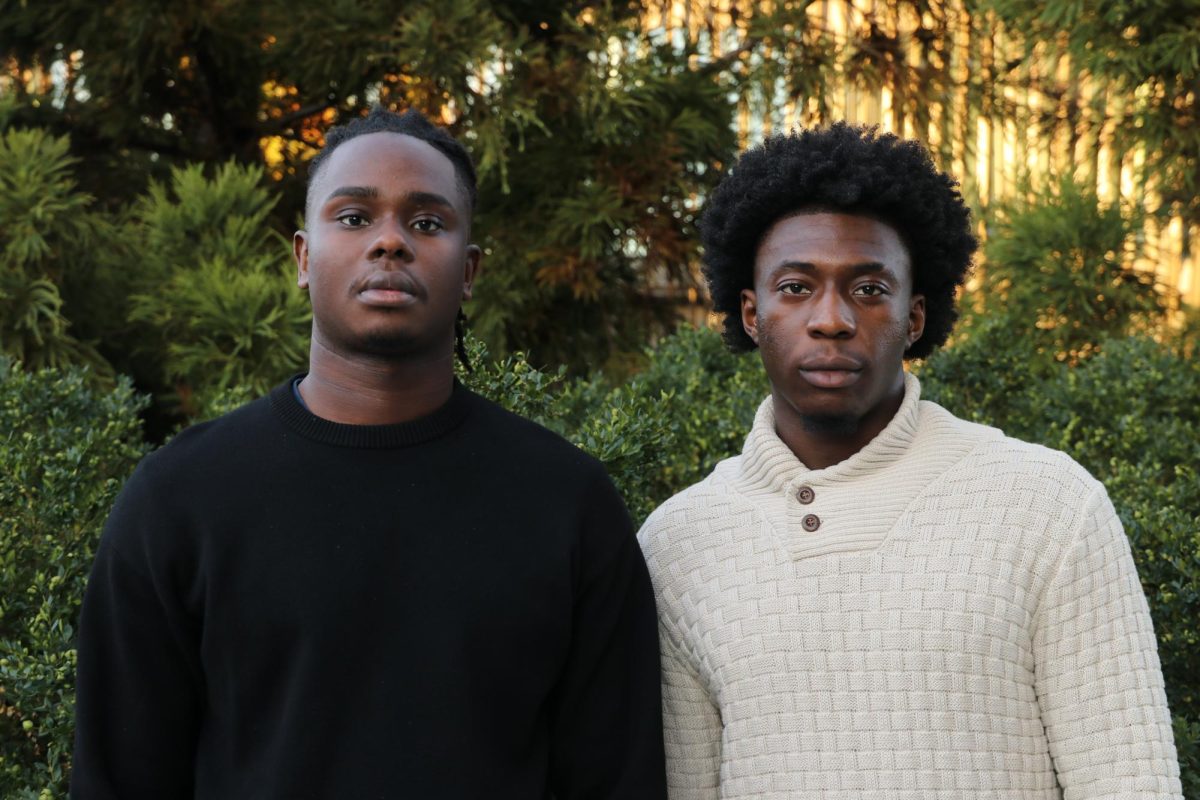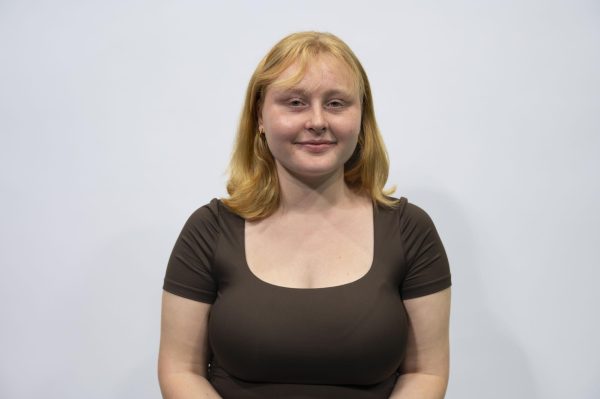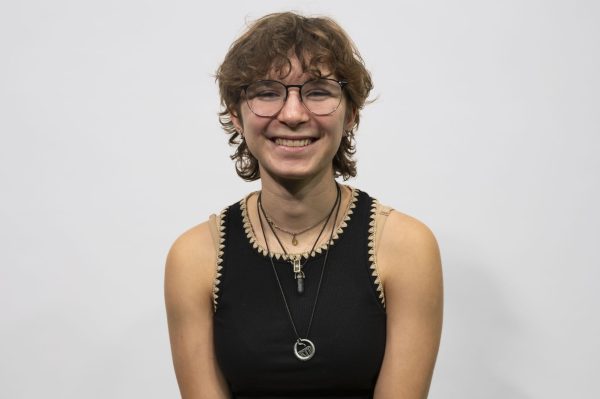Austin Omala and Kobena Idun clicked immediately when they met by chance in the Curry Student Center their first year at Northeastern.
Now fourth-years, Omala and Idun — a business administration major and computer science major, respectively — are inseparable after they found a shared passion for the intersection of finance and data science.
The pair pitched ideas to each other frequently throughout the years while both gained experience at co-ops like Fidelity Investments and Morgan Stanley. In May 2023, both Omala and Idun came to each other with the same idea: an easy-to-use financial investing app.
The idea stuck, and it quickly turned from a resume-builder into a vision for a profitable company. They called their app Fineas.Ai, which stands for Financial Enterprise Analysis Software.
Omala said the idea to make investing information accessible had been in the back of his mind ever since he learned to invest when he was 14 years old.
“I remember how hard it was to find any information. It was almost impossible,” Omala said, adding that understanding what to do with information he managed to find was even more impossible.
Omala and Idun created Fineas.Ai to address this exact problem and help users who are just beginning to invest. While their target audience is beginner investors between the ages of 18 to 30 — not the middle-school age when Omala began — the two believe there is a gap in the investor information market they can fill.
Their app has streamlined the process of gathering information about a prospective investment. The app asks the user to enter an asset, giving examples such as Microsoft and Apple. After the asset is input, the app generates details and an analysis on five factors: price, news, technicals, financials and description.
Using generative AI, the software then combines multiple sources to create an easy-to-understand overview of any stocks and companies the user is interested in, citing its sources so the user can do further research on their own. The app also offers a chatbot to answer questions and offer solutions, helping the user think about next steps for their investments.
“There’s a large barrier to entry for people who don’t really understand financial information,” Omala said. “We wanted to figure out a way to distill that information, put it in front of them and help them make trades or at least be better informed before they make an investment decision.”
Omala and Idun said their evolution from friends to co-founders was seamless, and both naturally took on what most excited them about the project. Idun is the head of development, while Omala’s focus is finance and marketing.
“I like meetings. I like to know what’s going on,” Omala said. However, he said, Idun is “the opposite.”
“He’s the kind of guy that’s like, ‘OK, I know what I have to do … Don’t call me until I get it done,’” Omala said as Idun laughed and nodded.
For students who are looking to create something of their own, Idun said they should get started now.
“Just go for it and try to meet as many interesting people as you can on campus because they are out there,” he said.
While the app has potential to be profitable, Omala said he views the app as an opportunity to “democratize financial information” in a field with excessive barriers to entry
“We want people to be individually empowered in how they control their own finances,” Idun said.
The pair’s belief in the freedom of information is not just a philosophy in what the app offers, but the operation of the app itself. Fineas.Ai is an open-source software, meaning the public is free to replicate and distribute the code.
Omala said the team’s guiding principle is “doing well by doing good.” To the pair, this entails using open-source technology.
Fineas.Ai isn’t the first app to offer services for new investors. But top competitors like Bloomberg Terminal can cost upwards of $24,000 a year to access, and less expensive options such as ChatGPT or simpler chatbots don’t give the same straight-to-the-point analysis layout, Omala said. Fineas.Ai is currently free to use, but by early 2025, the founders are looking for the app to become profitable by setting prices around $14.99 to $24.99 a month, with the potential for student discounts.
“It’s important to note that we’re not doing anything that hasn’t been done,” Omala said. “We’re just doing it for a different target market.”
Omala and Idun’s mutual friend, Antwan Fisher, a fourth-year business administration major, is working with them to develop and further “gamify” the app. While Fisher was involved in the initial ideation stage, he stepped back from the project to focus on co-op and his studies, but has returned to the team this year.
“We’re combining a professional background, experience with the platform itself and this subject matter, to make what we think will be a really good product that will sell and that will be very much in demand,” Fisher said. “Our main advantage is to really think about who’s a retail investor, what are their needs and how they’re being met by the market.”
Fineas.Ai has six staff members who are all currently on a volunteer basis to build and market the app. Though the project is still in an early funding, or “pre-seed,” stage, Omala and Idun are picking up speed with the help of investments they’ve obtained from programs including the Northeastern Prototype Fund.
“There’s a lot of power in information, good or bad,” Omala said. “We know that the intersection of finance and data science can lead to really revolutionary applications.”
The Huntington News is dedicated to serving the Northeastern University community with original, professional reporting and creating an environment in which student journalists can learn from one another. Support an independent, free press at Northeastern University with your donation today.












